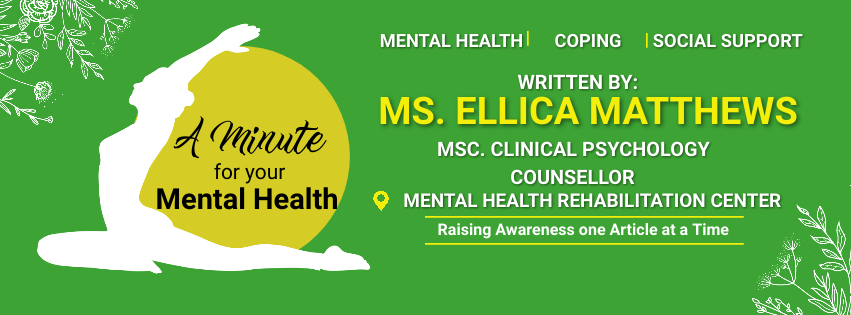The 9th of April 2022 will be the one-year anniversary of the eruption of the LaSoufriere Volcano in St. Vincent and the Grenadines. For some, it was the first experience of a volcanic eruption and for others, they would have experienced eruptions in the past. For many persons, the eruption and after effects would have been traumatic and are still traumatic as some persons continue to be displaced from the eruption. Thus, in light of this one-year anniversary and as a member of the Psychosocial Support Team, who would have had several sessions with persons trying to cope with the fallout of this traumatic event, what better topic than discussing trauma and your mental health.
A traumatic event is defined as a life event or series of events that causes stress on an individual. Traumatic events are marked by a sense of horror, helplessness, serious injury, threat of serious injury or even death. Traumatic events include seeing someone die, or you having a near death experience, being seriously injured, experiencing sexual or physical violence, serious natural disaster (hurricanes/ earthquakes/ volcanic eruptions/ tsunamis/ tornados), serious health problems, or a complicated childbirth experience. Persons can be exposed to traumatic events either directly, witnessing, learning that something happened to someone or repeated exposure to traumatic incidents.
It is important to remember that many persons are employed in jobs that continuously expose them to traumatic events, and we have to be reminded that although they may not experience it directly, they are continually exposed to traumatic events through their work. This includes police officers, nurses, social workers, counsellors, psychologists, doctors and first responders on a whole.
After a person has experienced a traumatic event, it is common for them to experience one of the following:
Memories, dreams and flashbacks
Feeling upset when reminded of the event
Negative emotions such as fear, horror, anger, guilt or shame
Avoiding people, places, persons and things that remind them of the traumatic experience
Loss of memory
Difficult feelings about self, others and the world
Finding it difficult to feel happiness, satisfaction or love for others
Loss of interest in things that one previously enjoyed
Feeling detached
Regressive behavior in children
Acting out behavior in teens
What can you do should you experience any of the issues listed above?
Give yourself time – it will take time to recover from a traumatic event, thinking that you should be able to “get over it” will further frustrate you.
Talk about the event – talking can help you to deal with pent up emotions.
Speak with others who have had the same experience as you, they might be able to provide introspection that you did not otherwise think about.
Ask for support from family, friends, or other persons that you trust.
Avoid spending to much time alone – being around others who love and support you can help to improve your mental health and limit the development of anxious and depressive symptoms.
Find a comfortable routine and stick to it, keeping busy is helpful.
Take care of yourself, make sure you are eating and sleeping well.
Acknowledge your feelings, this will help you to monitor yourself should any negative feeling arise.
Avoid consuming too much media as it relates to the traumatic event.
When you feel overwhelmed reach out to a professional for help.
Help can be accessed through the Mental Health Rehabilitation Center at 458-4240 or 458-6185. In addition, you can seek help though Hospital Services, the Ministry of Education, and the Ministry of National Mobilization.
Written by:
Ms. Ellica Matthews
MSc in Clinical Psychology

